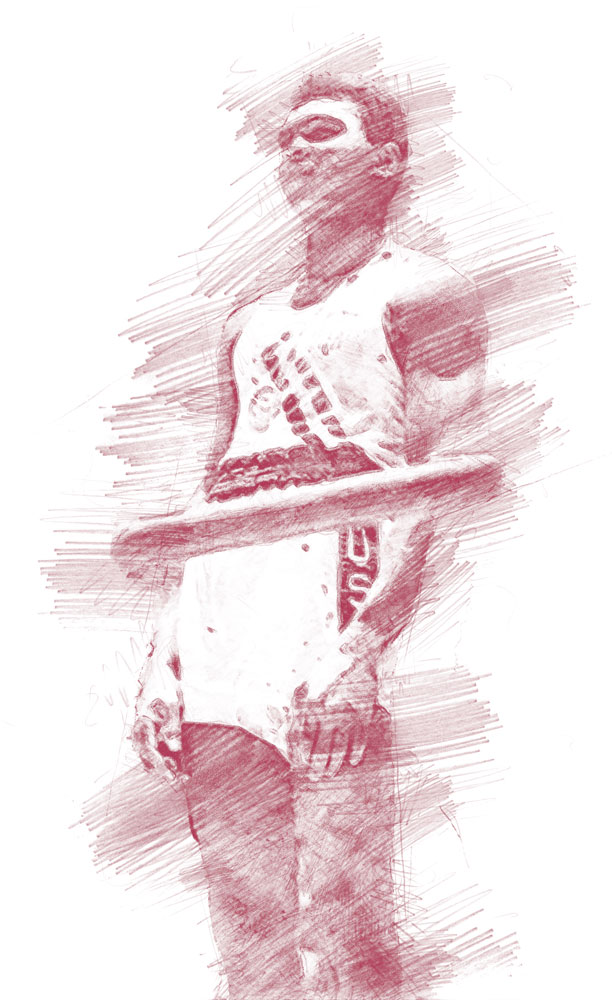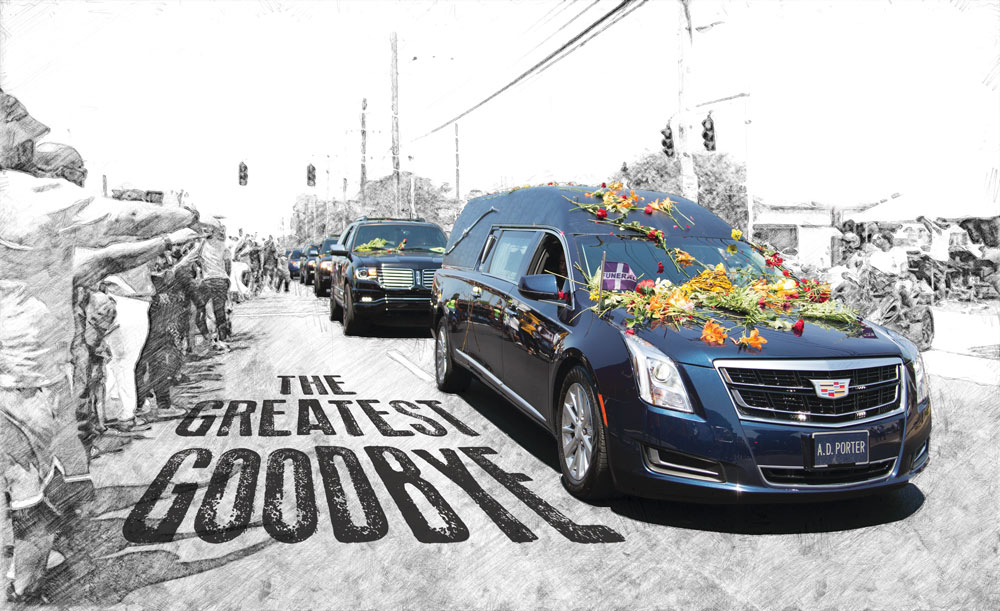"Crazy. Just crazy." For the 40 employees of the Muhammad Ali Center, that’s the overwhelming sentiment when remembering the week after Ali’s death. Crazy, they’ll say, in a wistful tone, a gentle exhalation to follow. There are other descriptions too — beautiful, amazing. To understand the crazy, absorb the volume: That week the Ali Center credentialed 263 members of the media; 25,000 people came to tour exhibits (the nonprofit museum and cultural center considers 100,000 guests over an entire year a bustling attendance rate); the Ali Center’s website traffic increased 2,200 percent and the center was mentioned in 30,000 stories seen around the world; the retail store recorded 3,329 purchases for a total of $129,308 in sales, compared with 793 purchases and just under $11,000 in sales for the same week in 2015.
12:30 a.m., June 4. That’s when the crazy started. Jeanie Kahnke, the Ali Center’s director of public relations, got the call that Muhammad Ali had died the day before. She activated the Ali Center’s phone tree — the same one used on snow days — to alert staff they must report to work. “Five or 10 minutes after that my phone started blowing up,” she recalls. That week it rarely stopped ringing. Calls came from ESPN and Al Jazeera and the BBC, all the networks, newspaper after newspaper, reporters needing confirmation and quotes. The Greatest was gone. “I heard from a friend who was on a safari in Africa, and they got to their hotel, and it was the only thing on TV,” Kahnke says with a bewildered chuckle.
Soon after news broke of Ali’s death, before the sun had a chance to rise, flowers started popping up around a fountain on the 40,000-square-foot plaza outside the Ali Center. Over the next week, visitors left poems, boxing gloves, pictures, a bee-shaped balloon. “The thing about Muhammad is, everyone felt like they knew him,” Kahnke says. “And even after one meeting, people thought they were friends. Muhammad made people feel like they were friends.” So the Ali Center’s 40 employees worked nonstop. “The thing that kept me going is that I know Muhammad always stayed somewhere to meet every single fan,” says Marissa Franz, the center’s visitor services manager. “Muhammad would’ve wanted us to make sure every fan could pay their respects.”
Even after exhibits closed, employees folded shirts to restock shelves cleaned of merchandise several times a day. At one point during the week, Franz ran out of shirts. A vendor in Alabama agreed to drive five hours to deliver a new order because shipping would take too long. The center received lots of help that week. Folks from the mayor’s office watered flowers and fielded press calls. Musicians, including Will Oldham and Teddy Abrams, performed on the plaza in tribute. It was hectic. It was lovely. Since the Ali Center opened in 2005, whenever challenges appear, a saving grace swoops in. Some of the employees credit what they like to call “Muhammad Magic.”
No one had time to jot down memorable moments. But some stories remain fresh. Like how that entire week the lobby smelled of fresh flowers. Or how, at first, the center tried to keep track of guests by giving out bracelets. They quickly ran out, so they tried stickers. Those ran out too. Eventually someone just stood at the door with a counter, clicking as each guest arrived. (The Ali Center waived fees that week.) Kahnke likes to share the story of a middle-aged man she met from Australia. He’d never been out of his country, never been on a plane, but when he heard of Ali’s passing, “He just had to come,” Kahnke says.
On Friday, June 10, the day of the funeral, at about 10 in the morning, an exhausted staff gathered on a sixth-floor balcony overlooking I-64. Under a bright sun, they waited to view Ali’s procession. At 10:17, Ali’s hearse slowed to a stop on the concrete ribbon below. All small talk vanished. Perched atop the shimmering, boxy structure that sits on the lip of the Ohio River and appears to lift off to the sky, the staffers looked down and wept. For the first time in a week, they paused. Crazy had put up a good defense to grief. In stillness, loss settled in. “It was like a period to a very long sentence,” Kahnke recalls. After a few minutes, the procession rolled westward. Everyone went back to work.

| PREVIOUS: Zaid Shakir, Imam | BACK TO INDEX | NEXT: Rasheda Ali, Daughter |


